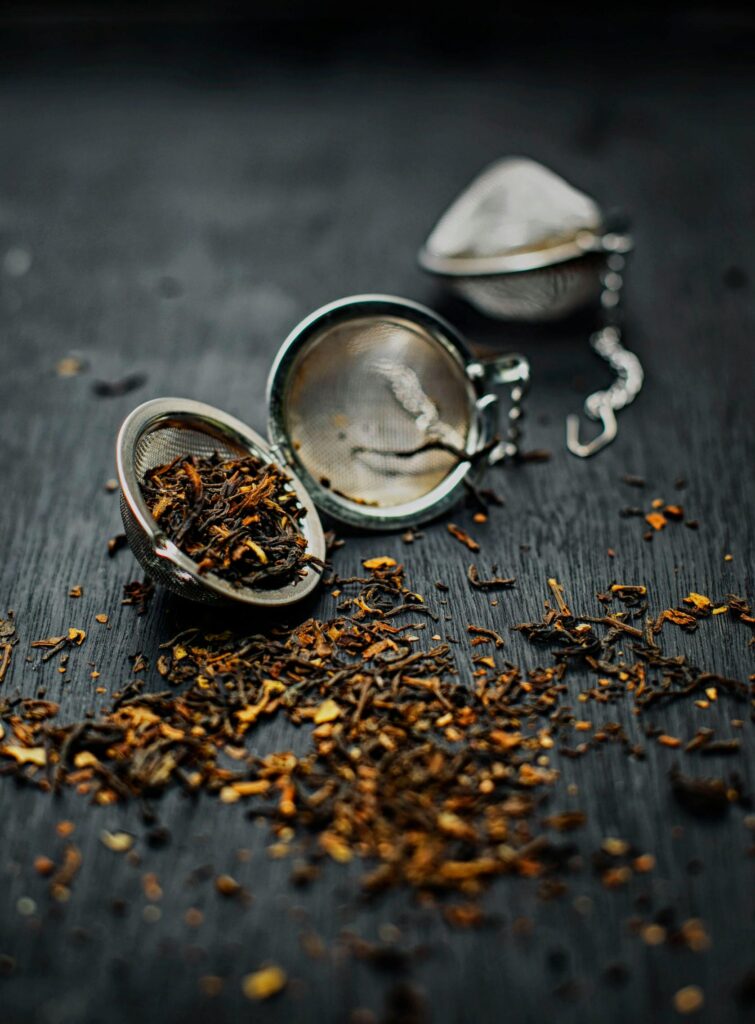Ultimate Herbal Showdown: Chamomile and Lavender Tea Compared
Table of Contents
Tea has long been celebrated not only for its delightful flavors but also for its numerous health benefits. Among the countless varieties available, chamomile and lavender tea are two popular choices cherished for their calming effects and soothing properties. But when choosing the right tea for your health, how do these two contenders compare?
In this article, we’ll delve into the unique characteristics of chamomile and lavender tea, exploring their health benefits, potential drawbacks, and ideal uses. Whether you’re seeking a nightly ritual to promote restful sleep or a fragrant brew to elevate your mood, understanding the distinctions between these herbal teas will help you make an informed choice. Join us as we uncover which tea reigns supreme in the battle for the title of the healthiest brew in 2024!

Quick Comparison
When it comes to choosing between chamomile and lavender tea, both offer unique health benefits. Chamomile tea is renowned for its calming properties, making it an excellent choice for promoting sleep and easing digestive issues. On the other hand, lavender tea is celebrated for its soothing aroma, and stress relief benefits along with its ability to reduce anxiety and improve mood. Ultimately, the best choice depends on your personal health goals: opt for chamomile if you’re looking for relaxation and digestive support, or choose lavender for a calming experience and mood enhancement.
Features

Chamomile tea is made from the dried flowers of the chamomile plant and is known for its light, floral flavor, and soothing aroma. Its primary feature is its ability to promote relaxation and improve sleep quality, making it a popular choice for those dealing with insomnia or anxiety. Additionally, chamomile is rich in antioxidants and possesses anti-inflammatory properties, which can aid in digestion and relieve symptoms of digestive disorders.
In contrast, lavender tea is crafted from the dried buds of the lavender plant, known for its fragrant and calming scent. The standout feature of lavender tea is its potential to alleviate stress and anxiety while also enhancing mood. Lavender has been linked to improved cognitive function and may help reduce headaches and migraines.
Both teas are caffeine-free, making them ideal options for evening enjoyment, but while chamomile focuses more on digestive health, lavender is often favored for its mental wellness benefits.
Pricing
When it comes to pricing, both chamomile and lavender teas are relatively affordable, making them accessible choices for tea lovers. Generally, chamomile tea can be found at certain prices depending on the brand and quality. On average, a box of chamomile tea bags typically costs between $3 to $10, while loose-leaf options may range from $8 to $15 for a decent-sized bag.
Lavender tea, on the other hand, often carries a slightly higher price point due to the labor-intensive harvesting process of lavender buds. Expect to pay around $4 to $12 for a box of lavender tea bags, while high-quality loose-leaf lavender tea can range from $10 to $20 per bag. Specialty brands that focus on organic or premium ingredients may charge even more. Overall, both teas offer good value for their health benefits, and purchasing them in bulk can often yield better savings.

Pros & Cons
Chamomile Tea
Pros:
Chamomile tea is widely praised for its calming effects, making it an excellent choice for those struggling with insomnia or anxiety. Its anti-inflammatory and antioxidant properties can promote digestive health and reduce bloating. Additionally, chamomile is known for being gentle on the stomach, making it suitable for those with sensitive digestive systems. It’s also caffeine-free, allowing for a relaxing experience.
Cons:
On the downside, some individuals may experience allergic reactions to chamomile, particularly those allergic to plants in the daisy family. Furthermore, while chamomile is generally safe, excessive consumption may lead to mild side effects such as nausea or vomiting in sensitive individuals.
Lavender Tea

Pros:
Lavender tea is celebrated for its ability to alleviate stress and anxiety, contributing to improved mood and relaxation. The aromatic qualities of lavender can also enhance the overall tea-drinking experience, making it a favorite for those seeking tranquility. Research suggests that lavender may improve sleep quality and cognitive function, adding to its appeal as a wellness tea.
Cons:
However, lavender tea may not be suitable for everyone. Some individuals may find its strong flavor overwhelming or may experience headaches as a side effect. Additionally, lavender is known to interact with certain medications, particularly those affecting hormone levels, so those on medication need to consult a healthcare provider before incorporating it into their routine.
Alternatives
If you’re exploring alternatives to chamomile and lavender tea, several herbal options can provide similar calming and health-promoting benefits. For those looking for a gentle, sleep-supporting alternative to chamomile, passionflower tea is an excellent choice. Known for its sedative properties, passionflower can help reduce anxiety and improve sleep quality without the risk of allergies associated with chamomile.
For a fragrant and soothing option similar to lavender tea, consider lemon balm tea. This herb, a member of the mint family, offers a mild lemon flavor and is known for its calming effects, making it a great alternative for stress relief and relaxation. Another option is peppermint tea, which provides a refreshing flavor and can aid digestion while promoting a sense of calm.
Additionally, rooibos tea is a caffeine-free herbal tea that is rich in antioxidants and offers a slightly sweet, earthy flavor. While it may not have the same aromatic qualities as lavender, rooibos is versatile and can be enjoyed hot or iced, making it a delightful choice for any time of day. These alternatives can provide similar relaxation benefits while adding variety to your tea-drinking experience.

Other Relevant Categories
When evaluating chamomile and lavender tea, it’s important to consider various relevant categories beyond just their health benefits and pricing. Flavor Profile is one such category; chamomile tea is known for its mild, floral taste with sweet undertones, making it a comforting option for many. In contrast, lavender tea features a more pronounced floral aroma with a slightly herbal flavor, which some may find more complex and aromatic.
Culinary Uses is another category where these teas differ. Chamomile is often enjoyed as a soothing beverage but can also be infused into desserts, such as chamomile-infused cakes or ice creams. Lavender is frequently used in culinary applications beyond tea, featuring baked goods, syrups, and even savory dishes, adding a unique flavor profile that enhances a wide range of recipes.
Availability and Accessibility are also a significant factor; while chamomile and lavender tea can be found in most grocery stores and online retailers, chamomile tea is typically more widely available due to its popularity. Lavender tea; while increasingly common, may be less readily accessible in certain regions, particularly in traditional tea sections.
Conclusion: Who is the Winner?
After a thorough comparison of chamomile and lavender tea, it’s clear that both have unique strengths that cater to different needs. If your primary goal is to promote restful sleep and soothe digestive discomfort, chamomile tea emerges as the top choice. Its gentle, floral flavor combined with its well-documented calming effects make it an ideal option for those seeking relaxation after a long day or for individuals dealing with anxiety and insomnia.
On the other hand, if you’re looking for a tea that enhances mood, alleviates stress, and adds a fragrant twist to your tea-drinking experience, lavender tea takes the lead. With its aromatic qualities and potential cognitive benefits, lavender tea is perfect for anyone wanting to unwind and enjoy a moment of tranquility.
Ultimately, the best choice depends on your health goals and flavor preferences. Whether you choose the soothing properties of chamomile or the uplifting aroma of lavender, both teas can play a valuable role in your wellness routine. Consider your needs and enjoy exploring the delightful world of herbal teas, knowing that either option can contribute positively to your overall health.
For more blog information: Click Here!




